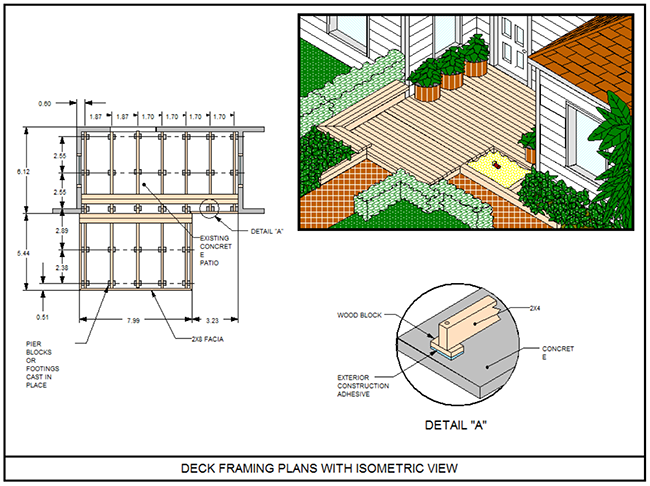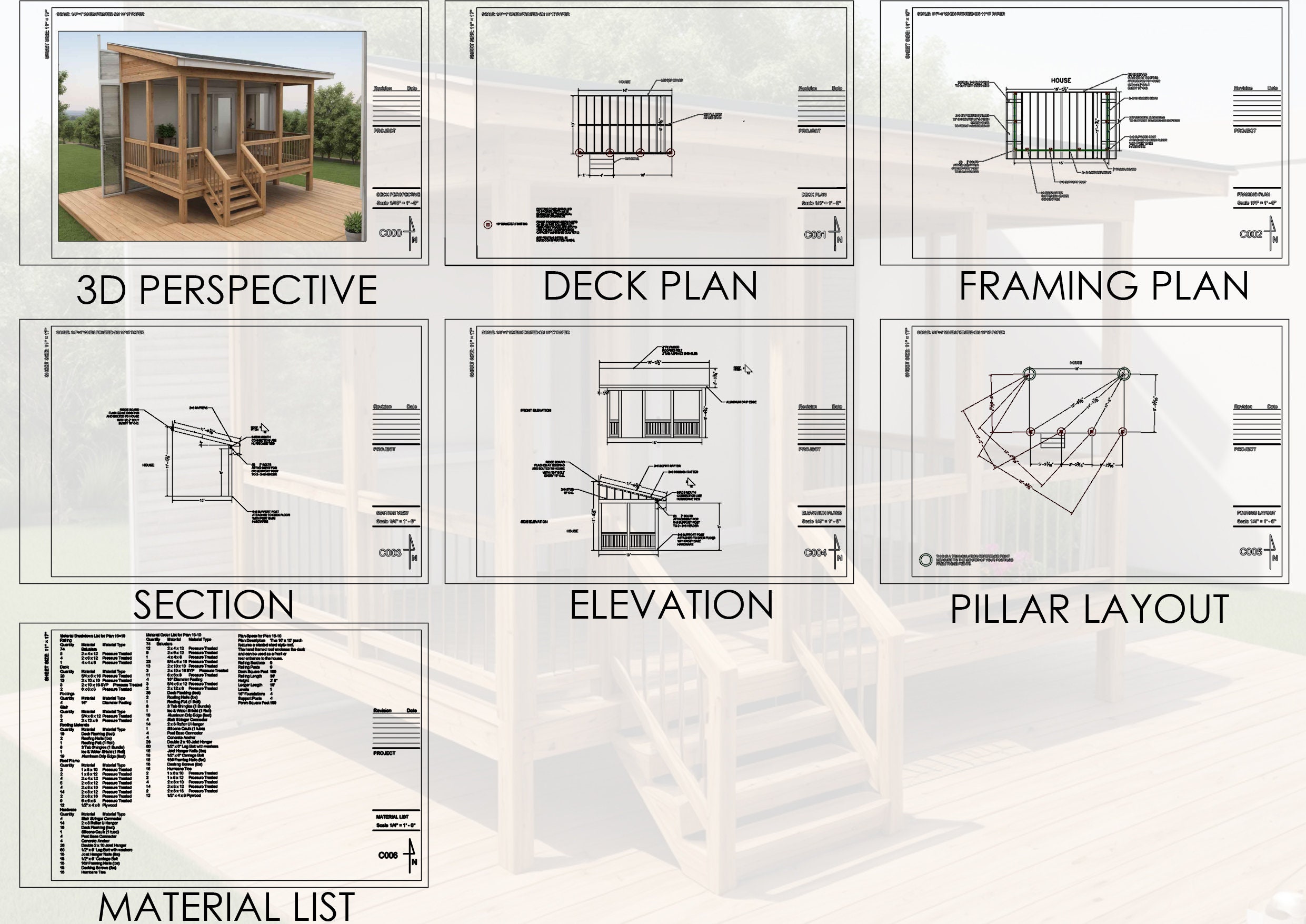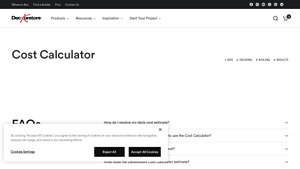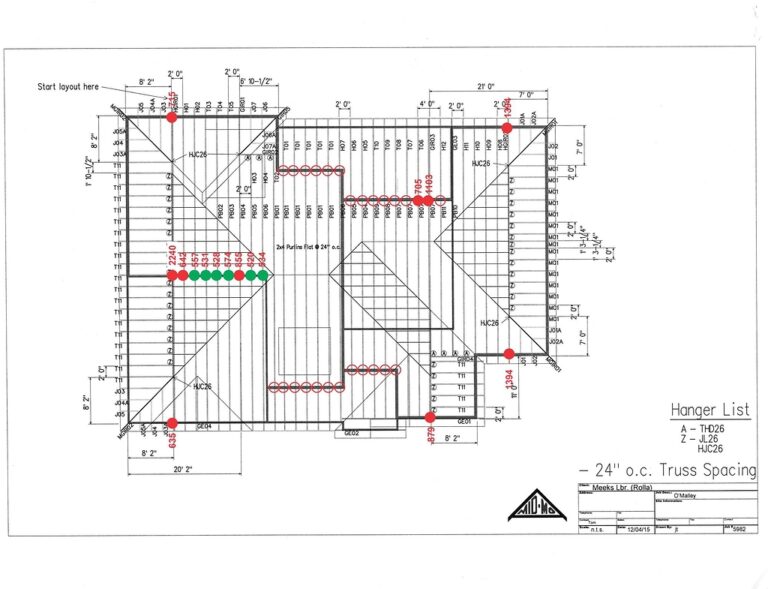Best Decking Calculator: Top 5 Tools Compared
Finding the Best Decking Calculator: An Introduction
When embarking on a decking project, whether it’s a simple DIY task or a more complex build, one of the most crucial steps is calculating the materials needed. However, finding a reliable decking calculator can be a challenge. With so many options available online, it’s easy to feel overwhelmed by the varying levels of accuracy, usability, and features offered by different tools. A good decking calculator should not only provide precise measurements but also consider factors like waste percentages and material costs to give users a comprehensive understanding of their project needs.
This article aims to simplify your search by reviewing and ranking the best decking calculators available online. Our goal is to save you time and effort, allowing you to focus on the creative aspects of your decking project rather than getting bogged down by calculations. We have meticulously analyzed each tool based on several key criteria:
Criteria for Ranking
- Accuracy: The precision of the calculations and the reliability of the results.
- Ease of Use: User-friendly interfaces that make it simple for anyone, regardless of experience level, to input data and interpret results.
- Features: Additional functionalities that enhance the user experience, such as cost estimators, material suggestions, and design support.
By focusing on these criteria, we aim to provide you with a clear and unbiased overview of the top decking calculators. Whether you’re looking to build a new deck or replace an old one, our findings will help you choose the best tool to ensure your project is a success.
Our Criteria: How We Selected the Top Tools
Key Criteria for Selecting the Best Decking Calculators
When evaluating the top decking calculators available online, we employed a comprehensive set of criteria to ensure that our selections meet the needs of both novice DIYers and experienced builders. Here’s a breakdown of the essential factors we considered:
-
Accuracy and Reliability
– The primary purpose of a decking calculator is to provide precise measurements and estimates. We prioritized tools that demonstrated a proven track record of accuracy in calculating materials required for various deck designs and configurations. Tools that incorporate waste factors and other variables were favored to provide realistic estimates. -
Ease of Use
– A user-friendly interface is crucial for ensuring that users can quickly and easily input their data. We looked for calculators that featured intuitive layouts, clear instructions, and minimal jargon. Accessibility features such as mobile compatibility and responsive design were also taken into account, allowing users to calculate on-the-go. -
Key Features
– The best calculators offered a range of inputs that are vital for accurate calculations, including:- Total Square Feet: Users should easily input the total area of the deck.
- Board Size Selection: Options for various decking materials and sizes, including wood and composite, to reflect the user’s preferences.
- Joist Spacing: Ability to select joist spacing (e.g., 12″, 16″, or 24″ on center) for more accurate lumber requirements.
- Decking Angle: Users can specify how boards will be laid out (e.g., parallel or diagonal to joists).
- Material Options: Integration of different material types and their associated costs to give users a better understanding of budget requirements.
-
Cost (Free vs. Paid)
– We considered whether the calculators were free to use or required payment. Free tools are advantageous for casual users, while paid calculators that offer premium features were also evaluated based on their value. We sought tools that provided a balance between functionality and cost-effectiveness, ensuring users can access valuable resources without excessive financial burden.
-
Comprehensive Support Resources
– A good decking calculator should offer additional resources, such as how-to guides, FAQs, and customer support. We favored tools that provided educational content to help users understand the decking process better, including tips on material selection and installation. -
Reputation and User Reviews
– User feedback is a significant indicator of a tool’s effectiveness. We analyzed user reviews and ratings to gauge the overall satisfaction and reliability of each calculator. Tools with consistently positive feedback and high ratings were prioritized.
By applying these criteria, we aimed to identify the most effective and user-friendly decking calculators, ensuring that our readers can confidently plan their decking projects with the best tools available.
The Best Decking Calculators of 2025
2. Deck Board & Materials Calculator in 2025
The Deck Board & Materials Calculator from Decks.com is an essential tool for homeowners and builders looking to accurately estimate the materials needed for a decking project. By simply inputting your deck dimensions, the calculator provides precise calculations for the number of deck boards, hidden fasteners, and screws required, ensuring you have everything you need for a successful installation without excess waste. This user-friendly tool streamlines the planning process, making it easier to budget and source materials.
- Website: decks.com
- Established: Approx. 27 years (domain registered in 1998)
5. Deck Cost Calculator
The Deck Cost Calculator from Deckorators is designed to help homeowners quickly estimate the materials required for their deck projects. By inputting specific details about the desired deck size and features, users receive a general cost estimate, aiding in budget planning. However, it’s important to note that the provided estimates are approximations and should not replace professional quotes for accurate pricing.
- Website: deckorators.com
- Established: Approx. 27 years (domain registered in 1998)
How to Get the Most Accurate Results
Double-Check Your Inputs
One of the most critical steps in obtaining accurate results from a decking calculator is to ensure that all your inputs are correct. Before you hit the “Calculate” button, take a moment to review the dimensions, board sizes, and any other variables you’ve entered. A small mistake in measurement—such as an extra foot or an incorrect board size—can lead to significant discrepancies in the final calculations. It’s beneficial to have a tape measure handy to verify your deck dimensions and ensure accuracy. If possible, consult any existing plans or drawings to provide a reference point for your inputs.
Understand the Underlying Assumptions
Each decking calculator may operate under different assumptions, such as standard waste factors, spacing between boards, and the type of materials used. Familiarize yourself with these assumptions to better understand how they affect your results. For instance, some calculators might include a standard waste percentage (usually around 10% to 15%) for materials, while others may require you to input your own waste factor based on your experience. Knowing these details can help you adjust your calculations as needed and provide a more tailored estimate for your project.
Use Multiple Tools for Comparison
No single online calculator can cover every aspect of your decking project comprehensively. Therefore, it’s a smart idea to use multiple calculators to cross-reference your results. Different tools may offer varying insights based on their unique algorithms and inputs. For example, you might find that one calculator gives you a better estimate for the number of boards needed while another provides more accurate cost assessments. By comparing results from several sources, you can arrive at a more reliable estimate and avoid potential pitfalls.
Account for Local Conditions
Local building codes, climate, and terrain can all influence the materials and methods you’ll need for your decking project. Be sure to factor in these local conditions when using online calculators. If you live in an area prone to heavy rainfall or extreme temperatures, for example, you may need to adjust your material choices or installation techniques accordingly. Additionally, checking with local authorities about building codes can help you avoid costly mistakes down the line.
Consult with Professionals
While online calculators are excellent tools for planning, they are not a substitute for professional advice. If you’re unsure about any aspect of your decking project—whether it’s measurements, materials, or design—don’t hesitate to consult with a contractor or a decking specialist. They can provide tailored advice based on your specific needs and help you interpret the results from your online calculations more effectively.
Document Your Results
Finally, keep a record of the results from your calculators, including any assumptions made and adjustments applied. This documentation can serve as a valuable reference as you move forward with your decking project. It will also help you track any changes in your calculations as you refine your plans, allowing for better decision-making throughout the process. By following these guidelines, you can maximize the accuracy and effectiveness of your decking calculator results, leading to a successful and satisfying decking project.
Frequently Asked Questions (FAQs)
1. What is a decking calculator and how does it work?
A decking calculator is an online tool designed to help homeowners and builders estimate the materials needed for a decking project. Users input specific dimensions of their deck, such as length, width, and desired board size. The calculator then provides estimates for the number of boards required, including waste factors, as well as the number of screws and fasteners needed. This helps ensure you purchase the right amount of materials, reducing waste and saving costs.
2. Why should I use a decking calculator instead of manual calculations?
Using a decking calculator is advantageous because it simplifies the estimation process and minimizes the risk of errors. Manual calculations can be time-consuming and may lead to mistakes, especially when considering factors like board spacing and waste. A calculator streamlines this by quickly providing accurate estimates based on your inputs, allowing you to focus more on the actual construction process.
3. What information do I need to use a decking calculator?
To effectively use a decking calculator, you typically need the following information:
– Total square footage of your deck: Measure the length and width of the area you plan to deck and multiply these values.
– Board size: Specify the dimensions of the boards you intend to use (e.g., 2″x6″, 5/4″x6″).
– Joist spacing: Choose the spacing between joists (common options include 12″, 16″, or 24″ on center).
– Decking angle: Indicate the angle at which the boards will be laid (e.g., 90° or 45° to the joist).
Providing this information will enable the calculator to give you the most accurate estimates.
4. Are decking calculators accurate?
Yes, decking calculators are generally accurate as long as you input the correct dimensions and specifications. However, the accuracy also depends on the assumptions made by the calculator regarding waste factors and board spacing. It’s important to review the results and consider any unique aspects of your project, such as intricate designs or features, that may require adjustments to the estimates provided.
5. Can I use a decking calculator for different types of materials?
Absolutely! Most decking calculators accommodate various types of materials, including pressure-treated wood, composite decking, and PVC. When using the calculator, you can typically select the material type, which may influence the cost and the required amount of materials. Be sure to check if the calculator you are using includes options for the specific materials you plan to use for your decking project.
Important Disclaimer
⚠️ Important Disclaimer
The information and reviews in this guide are for educational purposes only and are based on publicly available information. We are not affiliated with any of the tools mentioned. Features and pricing may change. Always conduct your own research before choosing a tool for your needs.






